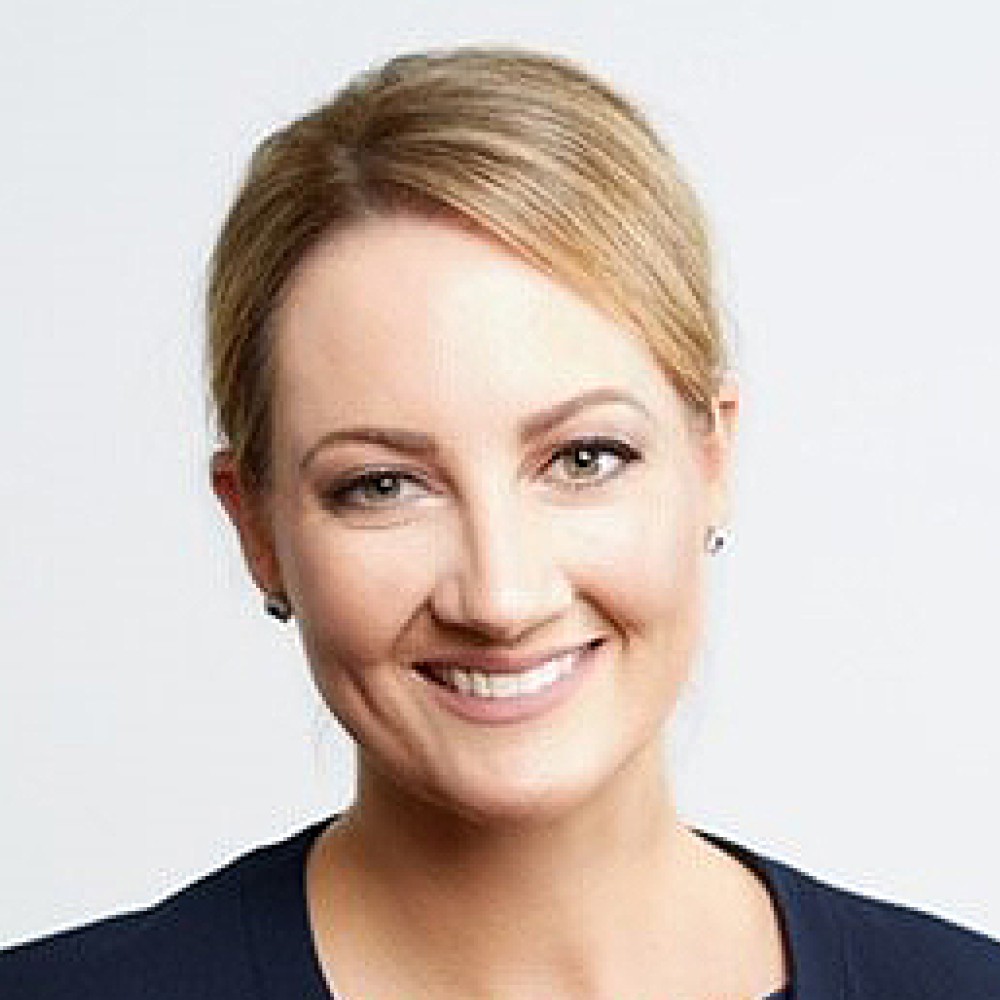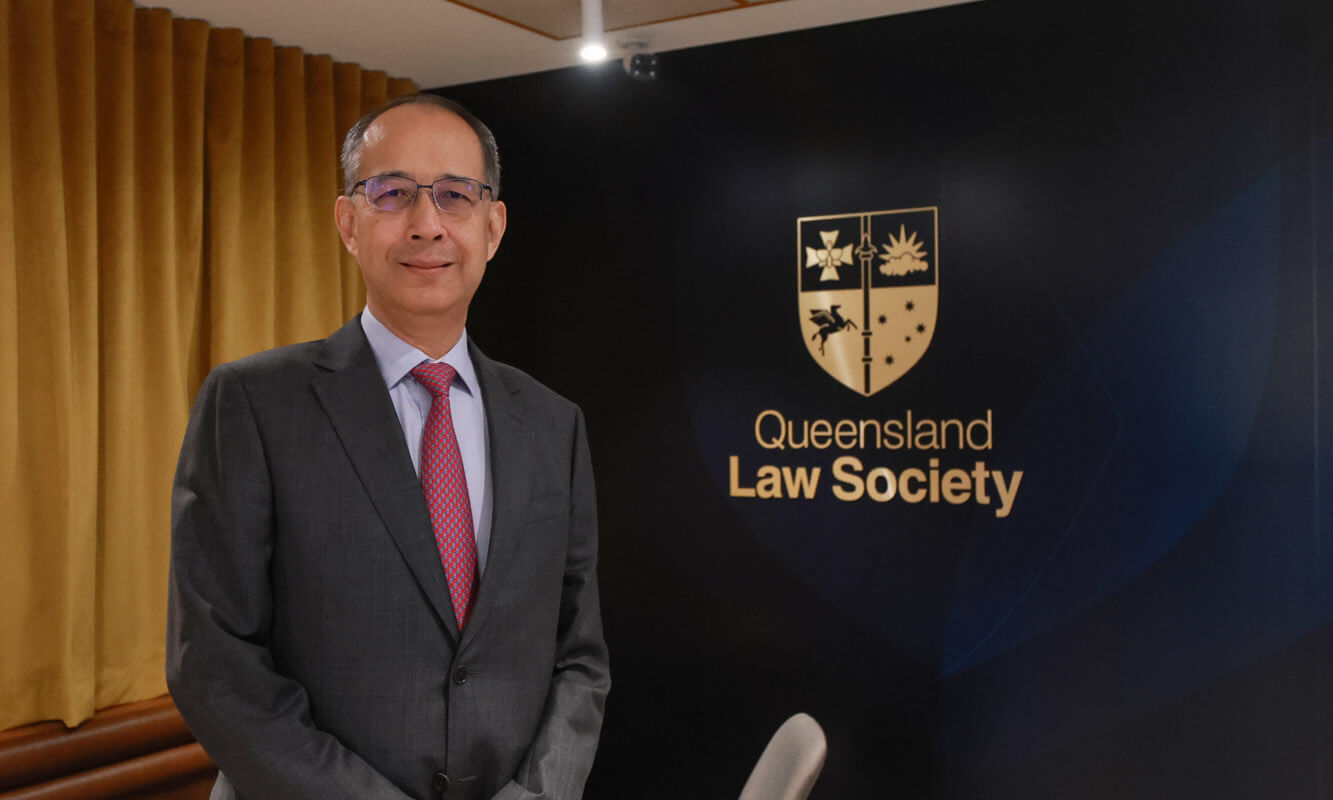Today marks two years since Queensland’s first coronavirus case was confirmed, and as the ‘peak’ is reached across the state, the legal profession continues to grapple with the impacts of the pandemic on its practices and clients.
At this point in time, most legal practitioners either know someone who’s had COVID-19, have contracted it themselves or been deemed a ‘close contact’ of someone who has.
Further, with the new working year well under way, most in the industry find themselves working from home, in line with government advice.
Queensland Law Society President Kara Thomson said Queensland practitioners had been quick to adjust to an online delivery of legal services this year, and had found ways to adapt to the changing landscape of practising law in the current climate.
“2022 so far has been tough, with firms being struck by unavoidable disruptions, but the adaptability and enthusiasm of solicitors in meeting the challenge has been encouraging,” she said.
“2020 and 2021 taught us a lot, but there is still a long way to go, and part of that is recognising the need for technological advances and upskilling.”
Members of the legal profession have seen an inevitable surge in the use of technology in practice over the past two years. Many practitioners and clients alike have welcomed the changes introduced, finding new systems more convenient and efficient.
A number of legal sectors have also experienced an increase in workload and demand over this time.
And the pandemic has, of course, given rise to more flexible working arrangements, and an increased prevalence of ‘hybrid’ working. This was a foreign concept to some, including early career lawyers who wouldn’t typically work from home in years gone by.
The departure of the traditional working in the office model has also challenged firms to find new ways of building positive workplace culture, and allowing for mentorship and professional development opportunities.
So, how are your fellow practitioners coping with the challenges of COVID-19, and how have their practices been impacted as a result?
QLS Proctor spoke with several legal professionals and asked them to share their perspectives on the impacts of COVID-19 on their work and practices more broadly.
- Kelli Martin – Managing Partner, KLM Solicitors
- Shannon Toto – Special Counsel, Murdoch Lawyers
- Genevieve Dee – Partner, Lander & Rogers and QLS Council member
- Ebony Archer – Associate, Clifford Gouldson Lawyers
- Joel Murgha – Solicitor, Terri Janke and Company
- Rebecca Fogerty – Partner, Jasper Fogerty Lawyers and QLS Council member
- Jamie McPherson – Partner, HBA Legal
Kelli Martin
Managing Partner at KLM Solicitors Kelli Martin was forced to deal with a firm-wide COVID-19 outbreak last month, when most of her team contracted the virus at the staff Christmas party, a week out from COB 2021.
With staff across all four of her offices affected, she emphasised the need for employers to plan for the worst.
“You’ve got to be prepared for everyone to go down at once, because that’s exactly what happened to us,” she said. “One person tested positive and then 80% of the staff were positive within days.”
Most of the staff recovered after two or three days, and although they were in home isolation, many chose to continue working – from home.
Kelli said it remains important for employers to ensure all systems and infrastructure are set up to work from home – to make sure staff are comfortable working remotely, and can do so productively.
“Making sure your phone system’s working online from home, because it may be that you can’t have any of your staff in the office at all,” she said. “Most people have somebody going in and out of the office to collect mail or scan things in – be prepared, that person probably needs to have a roster or backups available.
“Making sure your staff are not feeling so isolated as well – that’s really important. We do regular meetings via Teams or Zoom.”
Shannon Toto
There’s no doubt COVID-19 has had an extraordinary effect on the property market, and property lawyer Shannon Toto, Special Counsel at Murdoch Lawyers, has seen firsthand the increase in demand this has meant for conveyancing and property services.
“The way those services are delivered through technological means has allowed us to keep pace with the market and demand,” he said. “We have seen the digital transformation of conveyancing through PEXA and the convenience of applications such as DocuSign.
“We also use a platform which allows us to complete verification of identity of clients online.”
Shannon said the firm’s clients had welcomed the changes in most cases. On his team’s current hybrid working approach, he said the results had been “excellent”.
“Traditionally, I think law firms had an aversion to WFH arrangements, but COVID-19 has forced firms to review office arrangements and permit flexibility within the workplace,” he said.
“Of course, there are other distractions and disruptions when working from home which aren’t present in a professional office space, and the performance and productivity of the team should be monitored.”
Genevieve Dee
Genevieve Dee, Partner at Lander & Rogers and QLS Councillor, said her practice area of family and relationship law had witnessed a noticeable increase in demand since the start of the pandemic.
“The stress and uncertainty of COVID-19 has impacted relationships and I can’t recall a time when it has been this busy for family lawyers,” she said. “We are also seeing increased work in relation to relocation and vaccination of children, as well as where COVID-19 restrictions have impacted compliance with parenting orders.”
The firm’s clients and counsel have embraced technology and the ability to schedule conferences around their work and family commitments, without needing to attend the office in person.
The use of virtual conferences and mediations has allowed clients to progress their matters despite the impacts of COVID-19, and has also improved support for clients residing outside of metropolitan areas.
“The FCFCOA introduced virtual court events, which has resulted in costs savings for clients as we avoid long days at court waiting for matters to be heard,” she said. “The court also adopted e-filing for court material to make file access easier for all parties.”
Genevieve has seen an improvement in access to dispute resolution options within the court system. Using a virtual platform has meant the court has been able to widen its reach beyond the local registry, and allocate matters to court officers around the country.
She said the use of applications like DocuSign had also made the preparation and signing of documents simpler and more efficient.
Lander & Rogers shifted to remote working in March 2020 and will continue with flexible work arrangements moving forward, with team members able to nominate when they work from home and when they are in the office.
“Hybrid working is here to stay,” she said. “We also offer a $250 subsidy per person to offset costs to set up technology at home.
“When we surveyed the team recently, they told us they enjoy the extra time saved from having no commute, the flexibility to work hours that are convenient to them – particularly around home schooling commitments, and being closer to home and family throughout the day.”
Ebony Archer
Early career lawyer Ebony Archer is currently working to a ‘week on, week off’ schedule in the office.
“We find it works really well in balancing the risks associated with COVID-19 by only having half of the team working in the office at any one time, whilst also ensuring minimal impact on our team culture,” she said.
As an Associate at Clifford Gouldson Lawyers (CGL), a regional provider, she said the smaller nature of the firm had also assisted in maintaining this.
“Our management team has always recognised the importance of personal interactions, particularly when we are working from home,” she said. “We’re encouraged to reach out to other members of the team to check in regularly.”
Being a regional firm, CGL extends its service offering to a large geographic area, and as a result had been utilising technology to facilitate meetings, connect with clients and appear remotely for court appearances for a number of years.
Ebony has seen further training and courses adapt to provide more remote service offerings, and said her opportunities for professional development had probably increased in many instances.
As part of CGL’s workplace team, she has also witnessed an increase in workload, with clients requesting urgent advice on updated directives and mandatory COVID-19 vaccinations.
“Ultimately, I don’t think our practice has been either negatively or positively impacted – it’s just different.”
Joel Murgha
Joel Murgha was admitted to the legal profession last October.
He recently started a new role with Sydney-based firm Terri Janke and Company, on a full-time remote basis from his home in Cairns.
He is so far enjoying working from home, but also noted the importance of having a quality home office set-up.
“The firm got me the whole set-up from home,” he said. “A good quality chair, desk, monitors, laptop, and keyboard – everything that I would need in an office anyway.
“I get a lot more done, have more time and a lot more of the day. If I was in Sydney working in the office, I’d lose a few hours a day just travelling.”
Joel completed most of his university courses online and studied mainly from home, and said transitioning to online working models hadn’t been a big change for him.
Although working from home means junior lawyers can’t see in-person how senior lawyers prepare and run matters from start to finish, Joel said he had found online communications just as effective.
“I think it’s had more of an impact on clients,” he said. “There’s a lot of clients that don’t usually use Zoom, Teams or other video conferencing technology.
“In terms of career development, all the CPD (continuing professional development) training is online.”
Rebecca Fogerty
Partner at Jasper Fogerty Lawyers and QLS Councillor Rebecca Fogerty said COVID-19 had created all sorts of complexities for criminal practice, including access to justice.
“Criminal law practitioners were uniquely affected, because we are in court on an almost daily basis, and it is often necessary for our clients to attend in person if their matter is proceeding to hearing,” she said.
“Access to justice during COVID-19 – particularly for incarcerated clients and victims of domestic violence – remains an ongoing issue. With time, it is hoped that technological solutions will be found to minimise any delay or access to courts or a lawyer.”
She said a benefit of the pandemic had been a strengthening in dialogue between courts and practitioners as they made sure court procedures were as COVID-safe as possible.
Although the courts had been responsive in improving processes for electronic adjournments and telephone appearances, Rebecca said the constraints brought on by COVID-19 had affected advocates in court settings.
“In my view, advocacy is far more effective – and more enjoyable for the advocate – when it is done in person rather than electronically or over the phone,” she said. “Social distancing – particularly in smaller, regional courtrooms – was also challenging.”
Back in the office, Rebecca now uses a variety of web-based applications to facilitate contact with clients and with her team.
“We try to achieve a balance between the efficiencies of technology, with the importance of our team regularly getting together in person so we can learn and grow together.”
Jamie McPherson
Jamie McPherson, Partner at insurance practice HBA Legal, said the firm’s workload had remained steady throughout the pandemic, but the demand for workplace lawyers had increased.
“In workplace law which is where I work, that’s certainly picked up,” he said. “We’re providing clients with advice on COVID-19 compliance and, more recently, vaccine requirements.”
With a shift in the way technology is now used in practice, Jamie said the firm’s clients had adapted and seen the benefits of using any new technology, and the firm had provided clients with extra training where necessary.
Although his team is primarily working from home currently, the firm operated on flexible work arrangements long before COVID-19 hit. Up until late last year, employees were encouraged to attend the workplace at least once a week to touch base with the team in person.
“We did that from a mental health perspective as well as a cultural perspective – I think we’ve been able to maintain our culture that way,” he said. “The difficulty’s been getting into a rhythm over the last three to six months, because all the rules keep changing.
“Hopefully after what we’re going through now, we should be able to get into a rhythm – whatever that might be – to make it a lot easier for everyone.”
Visit the QLS COVID-19 page or view the FAQs to follow key developments in the Queensland legal profession’s pandemic response. LawCare offers confidential, personal and professional support to QLS members.




















Share this article